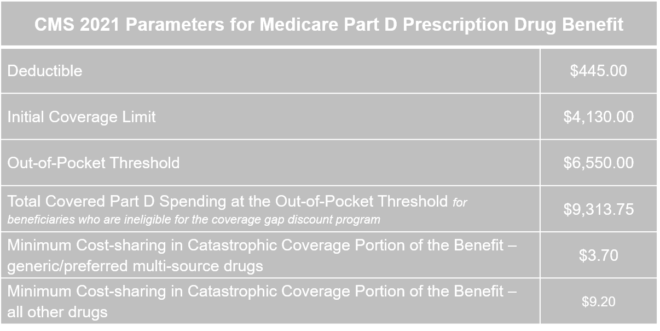Compliance Recap | April 2020
April was a busy month in the employee benefits world.
The President signed the Paycheck Protection Program and Health Care Enhancement Act (PPPHCEA). The Department of Labor (DOL) and the Department of the Treasury (Treasury) released a final rule extending certain timeframes under the Employee Retirement Income Security Act (ERISA) and Internal Revenue Code (IRC) for group health plans, disability, and other welfare plans, pension plans, and participants and beneficiaries of these plans during the COVID-19 national emergency. In addition, the DOL issued a disaster relief notice that extends deadlines for furnishing other required notices or disclosures to plan participants, beneficiaries, and other persons so that plan fiduciaries and plan sponsors have additional time to meet their obligations under Title I of ERISA during the COVID-19 outbreak.
The DOL released temporary regulations implementing the leave portions of the Families First Coronavirus Response Act (FFCRA). The Small Business Administration (SBA) released interim final regulations on the Paycheck Protection Program (PPP) and issued frequently asked questions (FAQs) on the PPP. The DOL, the Department of Health and Human Services (HHS), and the Treasury issued FAQs on health plan requirements under the FFCRA.
The Internal Revenue Service (IRS) issued a notice extending tax deadlines for individuals and businesses and also released IRS Form 7200 and instructions. The Centers for Medicare and Medicaid Services (CMS) issued FAQs on issuer flexibilities regarding utilization management and prior authorization due to COVID-19. The DOL Issued FAQs on health benefits and retirement plans for plan participants and beneficiaries impacted by COVID-19. CMS also issued its parameters for the defined standard Medicare Part D prescription drug benefit for 2021.
President Signs the Paycheck Protection Program and Health Care Enhancement Act
On April 24, 2020, President Trump signed the PPPHCEA. The PPPHCEA is phase 3.5 in Congress’ response to the COVID-19 pandemic following the Coronavirus Aid, Relief, and Economic Security Act (CARES Act), the Coronavirus Preparedness and Response Supplemental Appropriations Act, 2020, and the FFCRA. The PPPHCEA is a $484 billion package that increases amounts authorized and appropriated for the PPP, for emergency economic injury disaster loans (EIDL), and for emergency grants under the CARES Act. The PPPHCEA also provides additional funding for health care providers.
DOL and the Treasury Release a Final Rule on the Extension of Certain Timeframes Due to COVID-19
The DOL and the Treasury released a final rule that extends certain timeframes under the ERISA and IRC for group health plans, disability, and other welfare plans, pension plans, and participants and beneficiaries of these plans during the COVID-19 national emergency. The timing extensions are issued to help alleviate problems faced by health plans to comply with strict ERISA and IRC timeframes and problems faced by participants and beneficiaries in exercising their rights under health plans during the COVID-19 national emergency. The final rule takes effect May 4, 2020.
Read more about the final rule.
DOL Issues Disaster Relief Notice 2020-01
The DOL recognizes that the COVID-19 outbreak may impede efforts to comply with various requirements and deadlines under ERISA. As a result, the DOL’s Employee Benefits Security Administration (EBSA) issued Notice 2020-01 (Notice) that applies to employee benefit plans, employers, labor organizations, and other plan sponsors, plan fiduciaries, participants and beneficiaries, and service providers subject to ERISA. The Notice was issued in addition to the timeframe extensions final rule noted above. The Notice provides an extension on deadlines for furnishing other required notices or disclosures to plan participants, beneficiaries, and other persons so that plan fiduciaries and plan sponsors have additional time to meet their obligations under Title I of ERISA during the COVID-19 outbreak.
DOL Releases Temporary Regulations on the Families First Coronavirus Response Act
The DOL released temporary regulations implementing the Emergency Family Medical Leave Expansion Act (EFMLEA) and the Emergency Paid Sick Leave Act (EPSLA) provisions under the FFCRA. The regulations are effective April 1, 2020, through December 31, 2020, which corresponds to the effective and sunset dates for the FFCRA. The temporary regulations were issued by the DOL to provide immediate guidance prior to the publication of the FFCRA final regulations, and have the force of law.
Following the temporary regulations, the DOL released a correction to the temporary regulations that contained mainly non-substantive corrections to the temporary regulations, such as section numbering and referencing issues. However, the correction also clarified whether an employer can require an employee to use provided or accrued leave, such as vacation time or paid time off, concurrently with expanded Family and Medical Leave Act (FMLA) leave. The correction notice clarifies that an employee may elect to use, or an employer may require an employee to use provided or accrued paid leave concurrently with the paid portion of expanded FMLA leave.
Read more about the temporary regulations.
SBA Releases Interim Final Regulations and FAQs on the Paycheck Protection Program
The SBA released interim final regulations on the PPP. The interim final regulations were released in Q&A format providing guidance on key questions such as how to determine if an organization is eligible for the loan, how to determine the amount that can be borrowed, how to submit an application for the loan, and how the loan can be used.
The SBA and the Treasury also released FAQs on the PPP. The FAQs address various topics such as whether businesses with more than 500 employees can be eligible for a PPP loan, payroll substantiation requirements, the definition of payroll costs, and the payroll calculation time period.
Read more about the PPP in our Advisors “The Coronavirus Aid, Relief, and Economic Security Act Paycheck Protection Program” and “The Coronavirus Aid, Relief, and Economic Security Act Paycheck Protection Program Update.”
DOL, HHS, and the Treasury Issue FAQs on Health Plan Coverage under the FFCRA
The DOL, Department of Health and Human Services (HHS), and the Treasury have issued FAQs regarding group health plan coverage requirements under the FFCRA and the CARES Act. The FAQs clarify which health plans are subject to the coverage requirements for COVID-19 testing. Additionally, the FAQs provide relief from the timing requirements for providing plan participants with advance notification of modifications to a plan’s summary of benefits and coverage (SBC) when the modifications are made to add benefits or reduce cost sharing for coverage related to the diagnosis or treatment of COVID-19. The FAQs provide additional guidance on topics such as coverage for in vitro diagnostic tests and excepted benefits providing coverage for COVID-19 testing.
IRS Issues Notice Extending Tax Deadlines for Individuals and Business
Last month the Internal Revenue Service (IRS) issued IRS Notice 2020-18 which delayed the April 15, 2020, federal income tax filing and payment deadline for calendar year 2019 until July 15, 2020. The IRS recently released IRS Notice 2020-23 that expands this relief to additional returns, tax payments and other actions. As a result, the extensions generally now apply to all taxpayers that have a filing or payment deadline falling on or after April 1, 2020, and before July 15, 2020. Individuals, trusts, estates, corporations and other non-corporate tax filers qualify for the extra time.
Notably, IRS Notice 2020-23 has extended the Form 5500 filing deadline until July 15, 2020, for filings otherwise required to be made between April 1, 2020, and July 14, 2020, including those filings with deadlines falling within those dates due to a plan administrator’s request for a filing extension on IRS Form 5558, Application of Extension of Time to File Certain Employee Plan Returns.
Read more about IRS Notice 2020-23.
IRS Releases Form 7200 and Instructions
The IRS released Form 7200 along with completion Instructions. Form 7200 may be used by an employer to request an advance payment of tax credits for paid leave under the FFCRA and under the CARES Act employee retention tax credit (ERTC) provisions. The Instructions to Form 7200 are straightforward and provide line-by-line completion guidance.
The IRS also released frequently asked questions regarding the leave tax credits and ERTC.
Read more about IRS Form 7200.
CMS Issues FAQs on Issuer Flexibilities for Utilization Management and Prior Authorization Due to COVID-19
The Centers for Medicare and Medicaid Services (CMS) issued FAQs on utilization management and prior authorization under individual, large group, and small group plans offered by health insurance issuers to mitigate the impact of the COVID-19 public health emergency on providers. The FAQs encourage issuers to relax otherwise applicable utilization management processes, as permitted by state law, to ensure that staff at hospitals, clinics, and pharmacies can focus their limited time and resources on care delivery, and to ensure that patients have no delay in receiving needed care. The FAQs also encourage issuers to work with out-of-network providers to agree on a rate to ensure that enrollees are not balanced billed.
DOL Issues FAQs on Health Benefits and Retirement Plans for Plan Participants and Beneficiaries
The DOL issued FAQs to help employee benefit plan participants and beneficiaries, as well as plan sponsors, and employers, impacted by the COVID-19 outbreak understand their rights and responsibilities under Title I of ERISA. The FAQs provide general information on health benefit questions and who to contact regarding issues such as whether an individual will continue to be covered by an employer’s health plan if the employer temporarily closes, how to obtain other health coverage if an individual loses employer sponsored coverage, and whether COBRA notification timeframes have been extended.
The FAQs also provide information on retirement benefit questions and who to contact regarding issues such as obtaining retirement benefits and pension payments when an employer has temporarily closed, making changes to 401(k) investments when the plan official or service provider has been adversely affected by COVID-19, and whether an employer can terminate the retirement plan due to COVID-19.
CMS Releases 2021 Parameters for Medicare Part D Prescription Drug Benefit
The CMS released the following parameters for the defined standard Medicare Part D prescription drug benefit for 2021:
Generally, group health plan sponsors must disclose to Part D eligibility individuals whether the prescription drug coverage offered by the employer is creditable. Coverage is creditable if it, on average, pays out at least as much as coverage available through the defined standard Medicare Part D prescription drug plan.
Question of the Month
- If a health plan is modifying the terms of the plan or coverage to provide greater coverage related to the diagnosis and/or treatment of COVID-19 that affects the content of the summary of benefits and coverage (SBC) that is not reflected in the most recently provided SBC, will the plan be in violation of the timing requirements if it does not provide notice of the modification to enrollees at least 60 days prior to the date on which the modification takes effect?
- No. The DOL, HHS, and the Treasury will not take enforcement action against a plan or issuer that makes a modification to provide greater coverage related to the diagnosis and/or treatment of COVID-19, without providing at least 60 days advance notice. Plans and issuers must provide notice of the changes as soon as reasonably practicable.
5/11/2020




